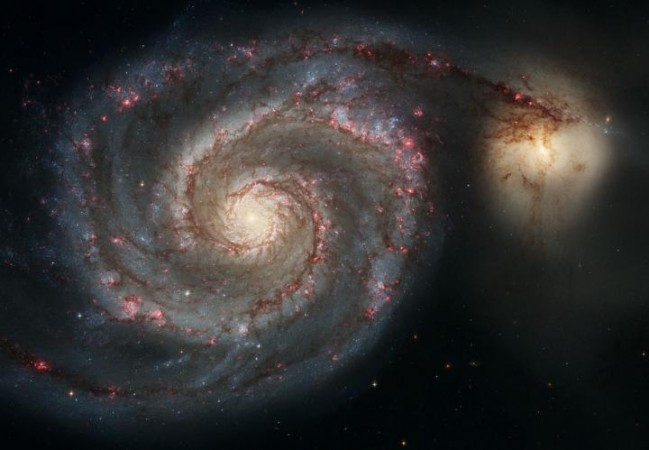
A new study led by Roeland van der Marel of the Space Telescope Science Institute in Baltimore has found that the galactic collision of Milky Way with Andromeda Galaxy will happen much earlier than previously thought.
Earlier, it was estimated that the collision will happen about 4.5 billion years from now, but this new study carried out using the data provided by the European Space Agency's Gaia spacecraft has found that the collision will happen within the next 3.9 billion years.
Galactic collision awaits
Experts believe that the new finding will provide crucial insights into the way in which galaxies evolve and interact.
"We needed to explore the galaxies' motions in 3D to uncover how they have grown and evolved and what creates and influences their features and behaviour. We were able to do this using the second package of high-quality data released by Gaia," said Roeland van der Marel in a recently issued statement.
A few weeks back, another study report had suggested that Milky Way will collide with Large Magellanic Cloud (LMC) within the next 2.5 billion years, 1.4 billion years before the estimated collision with Andromeda. Milky Way is more than 1,00,000 light year wide, while the LMC is just 14,000 light years wide. As the collision happens, Milky Way will devour the LMC without any kindness.
Repercussions on the solar system
Even though doomsday mongers believe that these upcoming cosmic events will turn the entire solar system to hell, experts argue that the chances of an apocalyptic event are pretty meagre. Space experts and astrophysicists believe that the distances between the stars in the Milky Way are too vast for these collisions to affect the stability of the solar system.
However, the galactic collision will be visible in the skies and if humans succeed to survive until then, we can witness the rare cosmic event.









